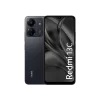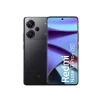[Source] Gatesnotes.com
Founder of Microsoft and everyone’s favourite philanthropist (Ok, my favourite philanthropist), Bill Gates, has come out and declared that he doesn’t think learning from textbooks is still ideal in this day and age. In a joint letter written by both Bill and Melinda (his wife) the billionaire expressed his doubts with the old-school learning medium:
I read more than my share of textbooks. But it’s a pretty limited way to learn something. Even the best text can’t figure out which concepts you understand and which ones you need more help with. It certainly can’t tell your teacher how well you grasped last night’s assigned reading.
But now, thanks to software, the standalone textbook is becoming a thing of the past. Suppose you’re taking high school algebra. Instead of just reading a chapter on solving equations, you can look at the text online, watch a super-engaging video that shows you how it’s done, and play a game that reinforces the concepts. Then you solve a few problems online, and the software creates new quiz questions to zero in on the ideas you’re not quite getting.All of this is a complement to what teachers do, not a replacement. Your teacher gets a rich report showing what you read and watched, which problems you got right and wrong, and the areas where you need more help. When you come to class the next day, she is equipped with a ton of specific information and suggestions to help her make the most of her time with you.
When I told you about this type of software in previous letters, it was mostly speculative. But now I can report that these tools have been adopted in thousands of U.S. classrooms from kindergarten through high school. Zearn, i-Ready, and LearnZillion are examples of digital curricula used by students and teachers throughout the U.S. More than 3,000 schools are teaching a free digital course that I fund called Big History, which uses software to give students immediate feedback on their writing assignments.
What’s next? The same basic cycle you go through for all software: Get lots of feedback on the existing products, collect data on what works, and make them better. This cycle is picking up steam as more states and districts gain confidence about using digital curricula in their schools. I hope this growing momentum will inspire more of the big textbook publishers, which have been slow to offer these kinds of tools.
In the meantime, I haven’t heard from anyone who misses their heavy, expensive textbooks.
Though I fully agree with Bill’s views, unfortunately, the same reality isn’t what we are noticing in our own country and it will be a few years before our teachers and students have the proficiency to use software for learning. Yes, I know some schools are already embracing tech but I’m speaking of this happening at national scale. Still looking forward to the day when software is embraced more widely within schools.





2 comments
Great article thanks !
It’s not so much about teachers and schools. It is about YOU!
https://www.linkedin.com/pulse/need-learning-has-never-been-greater-dave-young/